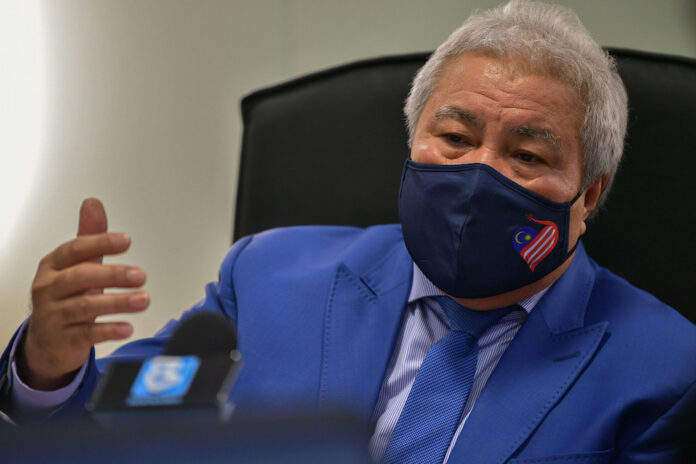Sarawak Deputy Chief Minister Datuk Amar Awang Tengah Ali Hasan during a special interview with Bernama in Kuching October 22, 2021. — Bernama pic
KUCHING, Oct 24 — Sarawak’s demands relating to its rights under the Malaysia Agreement 1963 (MA63) were made not just in the best interest of the state alone, but also of Malaysia, according to Deputy Chief Minister Datuk Amar Awang Tengah Ali Hasan.
He said negotiations to restore the rights of the state which may have been deliberately or inadvertently eroded was among the main agenda of the state government led by Gabungan Parti Sarawak (GPS).
“We will continue to fight because these are our rights that should be returned to us. We are thankful that there is a venue to discuss this matter, with the Prime Minister (Datuk Seri Ismail Sabri Yaakib) resuming negotiations through the Special Council on MA63.
“Several of our demands have been fulfilled, and whichever have not, we are committed to continuing with the negotiations to resolve the issues. We will continue doing this, not only for Sarawak but also for Malaysia, so that our beloved country will always move forward with a strong spirit of unity and solidarity,” he said in a recent special interview with Bernama at his office here.
Awang Tengah said ever since the era of its fourth Chief Minister Tun Pehin Sri Abdul Taib Mahmud (now Yang Dipertua Negeri of Sarawak), the state government has adopted a policy that focuses on efforts to develop Sarawak and improve the well-being of the people.
“From Tun Abdul Taib to the late Tok Nan (Tan Sri Adenan Satem) and now Abang Jo (Datuk Patinggi Abang Johari Tun Openg), Sarawak has maintained its political stability and has a stable government, a government that has a policy of not wanting to marginalise any party,” he said.
Awang Tengah said with a society of different ethnicities and religions, it was evident that those differences had never been a weakness but rather a strength that unites the people.
He said the state government, through the Chief Minister’s Department, had also established the Unit for Other Religion (Unifor) to create a harmonious society, an effort that was welcomed by all communities.
“For Muslims, we already have the Islamic Religious Council and the Islamic Religious Department. We set up Unifor to create a harmonious society, living together even though we are of different religious beliefs. This move is very much welcomed by the people,” he said.
He also called on the people to work closely together and strengthen unity to ensure political stability as it was vital in creating a conducive investment ecosystem and environment. — Bernama


